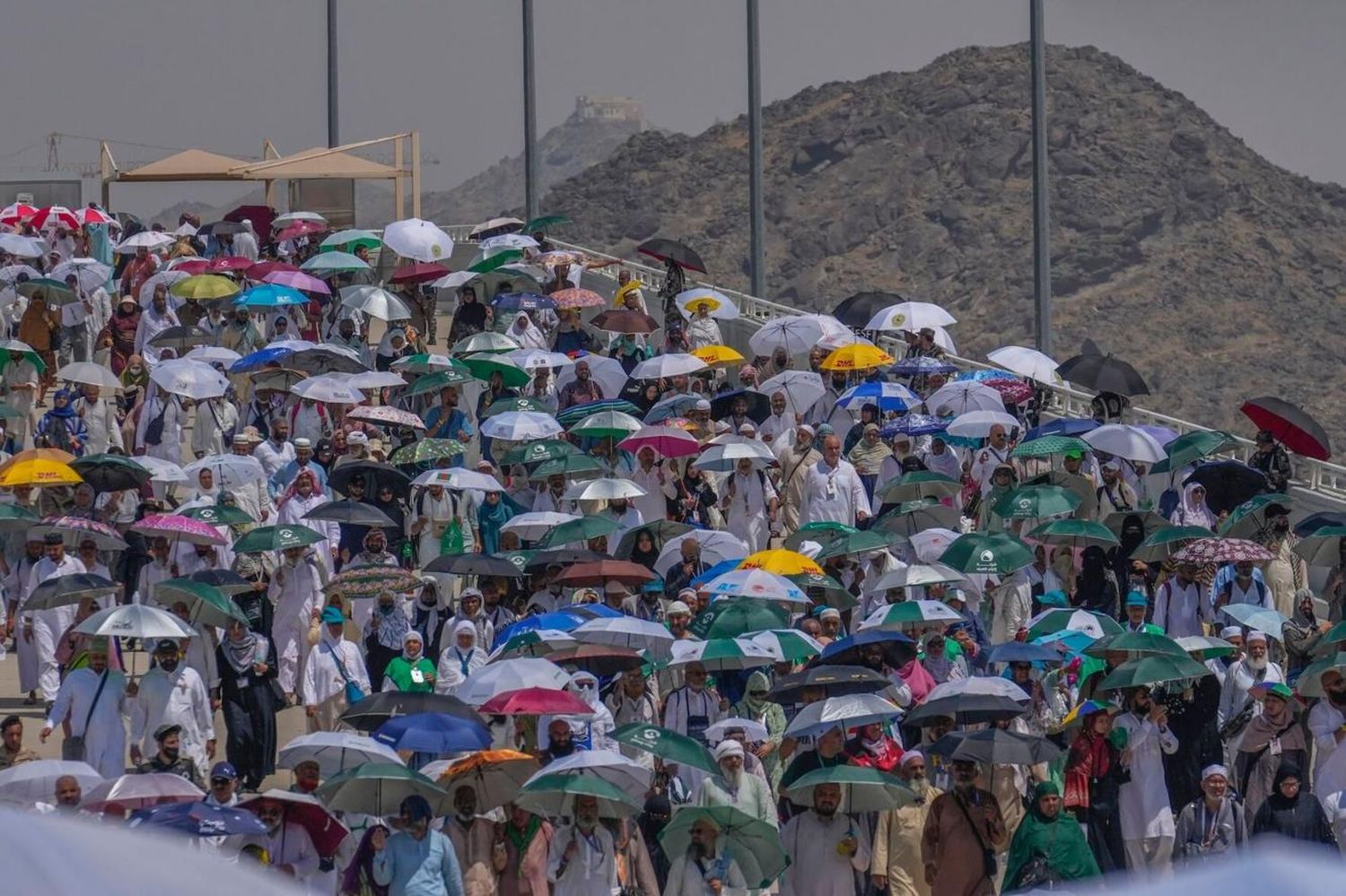Mecca Heatwave
Nearly 500 Confirmed Fatalities from Hajj Heatwave
Hundreds more feared dead in this heatwave described as one of the most intense in recent history
Mecca, Saudi Arabia — The annual Hajj pilgrimage, a pivotal event in the Islamic faith, has been marred by a catastrophic heatwave that has resulted in nearly 500 confirmed fatalities, with fears that the actual death toll could be significantly higher. The extreme temperatures, which reached a staggering 51.8 degrees Celsius (125 degrees Fahrenheit), have turned this year's pilgrimage into a tragic ordeal for the 1.8 million Muslims who traveled to Mecca.
The confirmed fatalities, reported by various countries, underscore the severe impact of the heatwave. Among the deceased are 165 Indonesians, 41 Jordanians, 35 Tunisians, and 11 Iranians. Egypt, which has yet to release an official death toll, is believed to have lost over 600 pilgrims, many of whom were unregistered and thus more vulnerable to the extreme conditions. The situation has been exacerbated by the presence of tens of thousands of unregistered pilgrims who, lacking official permits, were denied access to air-conditioned facilities provided by Saudi authorities.
The heatwave, described as one of the most intense in recent history, has overwhelmed the measures put in place by Saudi authorities to protect pilgrims. Despite the construction of over 100,000 air-conditioned tents, the distribution of water and umbrellas, and the planting of trees, the sheer scale of the heatwave has rendered these efforts insufficient. Thousands of pilgrims have been treated for heatstroke and other heat-related illnesses, with many more feared to be suffering in silence.
Dr. Adonis Imam, a physician from Augusta, Georgia, who was in Mecca, described the conditions as unprecedented. "I have not experienced any heat like this before. It was very strenuous. We got exhausted pretty quickly. Even short walks would take a toll on us," he said. Imam noted that while Saudi misting and cooling measures provided some relief, the intensity of the heat made it difficult for many pilgrims to cope.
The timing of the Hajj, determined by the Islamic lunar calendar, has meant that the pilgrimage has fallen during the sweltering Saudi summer for the past few years. This year's extreme heat has underscored the growing challenges posed by climate change. A study published this year projected that by 2050, Mecca could experience 182 days of dangerous heat for those outdoors in the sun, and 54 days of dangerous heat even in the shade.
The tragic events have also highlighted the risks faced by unregistered pilgrims. These individuals, who often travel through unofficial channels due to the high cost of authorized permits, are particularly vulnerable. Without access to the air-conditioned spaces provided for registered pilgrims, they are left to endure the full brunt of the heat. This disparity in access to official support and facilities has been a significant factor in the high number of fatalities among unregistered pilgrims.
The Saudi government has not yet released an official death toll, but state news agencies have reported several thousand cases of heat stress and sunstroke. The government has declared the Hajj a 'success,' citing the effective execution of plans related to security, prevention, organization, health, services, and traffic management. However, the high number of deaths has raised questions about the adequacy of these measures in the face of increasingly extreme weather conditions.
The Hajj is not only a religious event but also a significant economic activity for Saudi Arabia. The pilgrimage contributes substantially to the kingdom's economy, and efforts to bolster infrastructure and expand capacities at holy sites reflect its importance. Saudi Arabia's vision to attract more pilgrims aligns with ambitious targets for growth in pilgrimage-related income and job creation, aiming for 30 million pilgrims by 2030.
As the search for missing pilgrims continues, friends and family members are scouring hospitals and pleading on social media for updates. The social media landscape has been inundated with images of the missing and pleas for information. Among those unaccounted for is Mabrouka bint Salem Shushana, a Tunisian pilgrim in her early 70s, who has been missing since the culmination of the Hajj rituals on Mount Arafat. Her husband, Mohammed, has been frantically searching hospitals for her without success.
The extreme heat has not only claimed lives but also left many pilgrims physically and emotionally drained. The Saudi authorities face the daunting task of ensuring the safety of future pilgrims in the face of rising temperatures. The need for enhanced safety measures and more robust infrastructure to cope with extreme weather conditions has never been more urgent.
As the global heat crisis continues to intensify, the tragic events of this year's Hajj serve as a stark reminder of the human cost of climate change. The pilgrimage, a journey of faith and devotion, has been marred by a natural disaster that underscores the pressing need for global action to address the challenges posed by a warming planet.

